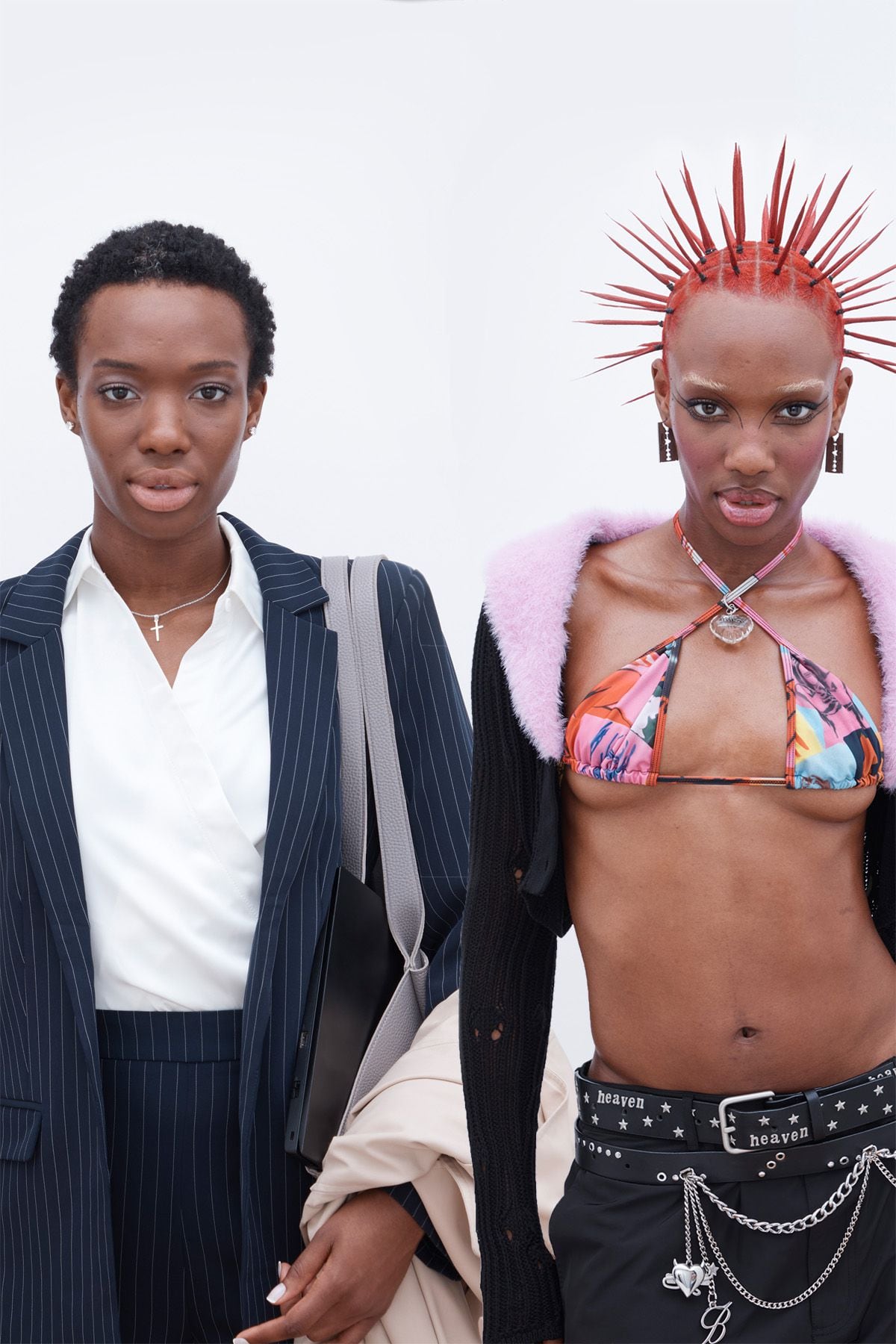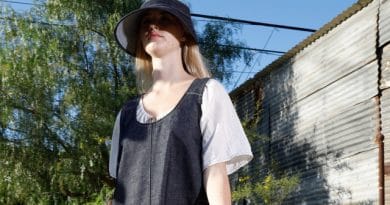Can Gen-Z Save Marc Jacobs Again?
Ethan Connett, 21, has never watched an episode of “Baywatch.” The show ended its 11-season run in 2001, the year before Connett was born, but he says it’s the casting of celebrities like Pamela Anderson that turned him into a superfan of Heaven by Marc Jacobs, the designer’s Y2K, rave and 1990s grunge influenced diffusion brand.
Seeing Anderson in an ad campaign last year – especially a brand so resonant with Gen-Z – unlocked the memory for him. “It was just so shocking, it was like, ‘Oh wow, of course.’ It just works,” said Connett, who works in manufacturing and design at House of Harlot, a London-based fetish latex brand. He discovered Heaven during lockdown in 2020 soon after the line launched.
“We’re going backwards, we’re looking at the 2000s and the 1990′s for all these references and how we can almost dress as if we’re in those eras and not in the era we’re in now,” Connett explained of his generation.
In early August, Heaven reached back into its nostalgia vault again when it released its first beauty collaboration with Bleach London, a line of hair dyes influenced by No Doubt and “The Fifth Element.” After seeing the campaign, Connett said that he too wanted to dye his hair bright green. The three shades – Eye Popping Pink, Electric Green, Bloody Valentine Red – are all sold out on Marc Jacobs’ website.
Leila-Beth Ashard, 18, who sports blue eyeshadow and bleached eyebrows, also said Heaven’s hair dye resonated with her. She cited the label’s “Eternal Sunshine of the Spotless Mind” collaboration from March, which included an orange hoodie, as an example of why the line has such a hold on her peers. Like Connett, Ashard was born in 2005, a year after the movie’s release.
Heaven’s Bleach London timing was fortuitous; on Monday, The Business of Beauty reported that Coty now holds the licence to produce, distribute and manufacture cosmetics for Marc Jacobs, which shuttered its Marc Jacobs Beauty label in 2021, eight years after LVMH beauty incubator Kendo introduced the makeup at Sephora. The partnership makes sense: Coty already has a long-standing relationship with the designer and has produced Marc Jacobs’ fragrances for 20 years. Reportedly, a new Marc Jacobs Beauty will come out in 2025. Coty did not respond to requests for comment and a publicist for the Marc Jacobs brand was unable to comment on the return of beauty “just yet.”
There’s a huge opportunity for a comeback: the original Marc Jacobs Beauty has a cult following, with many still mourning the loss of Velvet Noir mascara. And Heaven, due in large part to creative director Ava Nirui, has been fervently embraced by Gen-Z because of non-traditional collaborations, retail stores and ties back to vintage Jacobs in its prime.
Heaven has managed to command a masterful understanding of nostalgia and what’s current, evident in its campaigns which feature stars from Christina Ricci to Iris Law and Ice Spice. And “they’re always perfectly on time,” said a friend who works in the beauty industry. The brand is never too early and never too late – and always with the right casting, a luxury afforded to brands owned by LVMH, which acquired Marc Jacobs in the late 1990′s.
This all bodes well for Coty – if Heaven is the direction it chooses to go in. But in the meantime, we can only speculate what an upcoming beauty line might look and feel like.
What I do know: getting a Gen-Z-resonant brand to not abide by the rules of its owner is hard; it’s why The Ordinary still remains a bright spot for The Estée Lauder Companies. Lauder gives The Ordinary enough room to feel like its parents left them home alone.
If Coty decides to use Jacobs’ diffusion line as the foundation of the makeup re-launch, it will be tricky to afford the same freedoms LVMH has with Heaven. Companies like Coty and L’Oréal rely heavily on their designer licenses; they’re integral to the bottom line and following traditional launch calendars and distribution models is critical to the success of blockbuster beauty businesses for Gucci, YSL Beauty and others. According to Circana, Marc Jacobs’ Gen-Z focused Perfect fragrance was the largest prestige fragrance debut in the US, UK, Canada and Australia in 2020, the year it came out.
Recently, a L’Oréal executive told me that the ambition for YSL Beauty’s new Gen Z-focused men’s fragrance, MYSLF, is to be the conglomerate’s “biggest men’s launch in fragrance.” I assumed she meant for the year; she meant the biggest men’s fragrance to launch in the history of the biggest beauty company in the world. That’s a lot of pressure for the company behind both Ralph Lauren and Giorgio Armani’s men’s fragrance businesses.
We used to think that you had to create a new connection with the consumer (Glossier) to win with young people, but now you can just take a property and reinvigorate it with dollars the startup world can compete with. It’s the first time in a generation that the conglomerates have the upper hand. They have the distribution, capital to invest and access to historical intellectual property (IP) that consumers are looking for.
Connett, the fetish latex brand designer, said he is optimistic about the potential of Heaven-esque cosmetics.
“It feels like it would be more oriented to me than a random makeup brand. Even looking at the makeup brands for men – I absolutely hate them,” he told me. “Heaven is targeted to everyone. They wouldn’t necessarily say that, but they would show it.”
Heaven captures a very specific moment in the cultural zeitgeist, which could work to Coty’s benefit. (But that moment could very well be over by the time a standalone Heaven-adjacent makeup line hits shelves.)
Ideally, a re-imagined Marc Jacobs Beauty would venture into “very chic, very thoughtful luxury,” said Alexis Page, a beauty branding consultant who has worked with MAC Cosmetics, Glossier and Pat McGrath Labs.
Ironically, this could be just the thing that makes a potential vintage Marc Jacobs-inspired beauty line all the more exciting. Coty, focused on luxury and padding its prestige portfolio, coupled with vintage Jacobs’ elements from a 1990′s and early aughts heyday, now nostalgic in and of itself, could make for a perfect comeback. Because we all know that young customers pine for nothing more than anything that existed before they were born.


